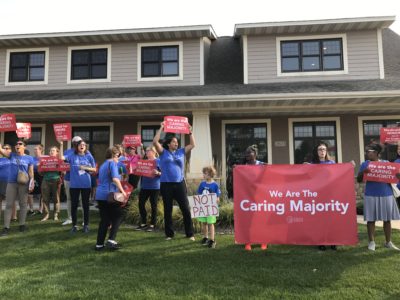Our work › Care Worker Action
Upcoming events
The latest news

5 Things to Know about the Caring Economy
Thank you to everyone who participated in the March for Medicaid and Caregiving. [<a href=”//storify.com/TakeActionMN/5-things-to-know-about-the-caring-majority” target=”_blank”>View the story “5 Things to Know about the Caring Economy” on Storify</a>]
Continue reading »#PayThePCA Campaign Update
PCAs, clients, and families are coming together on May 18th to push for legislation to increase wages and address the Care Crisis. Will you join us? For over a year, personal care attendants, clients and…
Continue reading »$10.80
The average hourly wage of a home care worker in Minnesota. Even after decades of experience, workers report little to no raises in compensation or benefits like earned sick and safe time, health insurance, or retirement options.
2016
The first year homecare workers were required to earn overtime wages after 40 worked in a week. Minnesota State funding has still not caught up to this law, meaning many workers are working hundreds of unpaid hours out of love for their clients.
6
The number of seconds another person in the U.S. turns 65, increasing the community of people who will need care and increasing the demand for good caregiving jobs.
For our Families. For our Clients. For Ourselves.
The exploitation of homecare workers, like other domestic workers, is rooted in this country’s legacy of slavery and a long history of devaluing women’s labor in the home. When the US established its first labor laws as part of the New Deal in the 1930s, lawmakers intentionally excluded domestic workers, along with farm workers, who were primarily African American. Some homecare were first granted minimum wage and overtime pay in the 1970s.
Together, we are working to re-create a system of caring across generations that upholds the dignity of workers, families, and clients. We believe that fair wages, skilled, affordable care and support for families to choose the right care for them is possible when together we, not corporations, are making decision about the system of care in our state and country.
Connect with our Campaign Team

Sabrina Mauritz
Organizing Director
sabrina@takeactionminnesota.org
Phone: 651-379-0762
Sabrina Mauritz’s bio »




